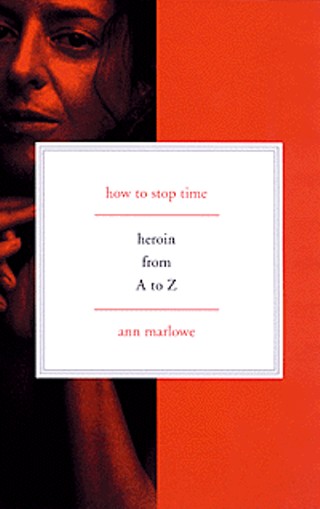how to stop time: heroin from A to Z
Reviewed by Karl Monger, Fri., Nov. 12, 1999

how to stop time: heroin from A to Z
by Ann MarloweBasic Books, 297 pp., $24
In this brazenly subtle work, Ann Marlowe delivers a hard-hitting memoir in the guise of an abbreviated dictionary of terms -- a Fodor's Guide to heroin addiction. Taking off full throttle from her observation that "rules are the enemy of entropy," she grids her wayward speculations with the imposingly rigid structure of the alphabet, interweaving passages of her tainted suburban upbringing with insightful, coldly rational confessions of her firsthand experience with heroin and a decade of Wall Street capitalism. Industrious heroin-loving business consultant by day, trend-ridden heroin-loving rock critic by night, Marlowe paints an indulgently titillating portrait of the consumeristic heyday that was the East Village in the 1980s and early Nineties.
Marlowe interprets addiction as a kind of nostalgic mourning, specifically a mourning for the addict's first -- and only truly glorious -- heroin high, which in turn comes to symbolize other past glories. Addiction entails pathological introspection, hence the need to "stop time" in order to recapture or re-examine enthralling aspects of the past. As a result, the addict becomes frozen in a timeless present, incapable of real progress on any front, caught in a self-defeating, self-deluding vortex and captivated by a cycle of "mismanaged aggression and sorrow." For her, addiction and cultural excess are inextricably linked, making her cool perspective more akin to McInerney or Ellis than to Burroughs or Carroll, despite the substance being spotlighted.
Marlowe's writing is cerebral, precise, evocative, honest, and often joltingly poignant. The book's format allows her to examine different facets of the addictive personality at once. The totems of clothing, personality, career, shopping, sports, and gender are all brought to bear on the condition (some more successfully than others). Her edgy depictions of a budding addict's incremental value-warping are loaded and fascinating. Yet, an insecure obsession with high-profile glamour occasionally undermines the authority of an otherwise menacingly straightforward work (she offhandedly proposes alliance after alliance with the most beautiful, precocious, ground-breaking people under the sun). And in an attempt to adhere to her ingenious format while maintaining a divulgent pace, her sociological aphorisms are often threatened by a perilous patness ("As with food, women worry far more about the amount and circumstances of their consumption, while generally men are more relaxed." "Addiction creates a god so that time will stop -- why all gods are created." "As long as heroin is illegal, getting it feels like work, and copping functions as a caricature of labor.").
In this vastly detached and unapologetic first book, Marlowe chronicles a soulful, hair-raising journey without once flinching. The good news here is that, having exorcised the insidious demons of her psychology and accepted her place in the march of time, she now appears ready to reclaim her life and move forward.








